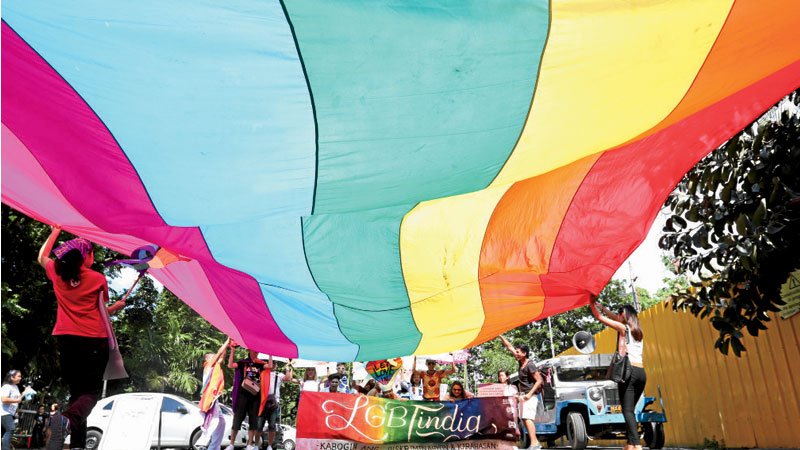
Members of the LGBT participate in a Pride March along Kalaw, in Manila following the deadly shooting in an Orlando gay club in the U.S. which killed 49 people.
INQUIRER/ MARIANNE BERMUDEZ
A ROMAN Catholic Church official on Monday said the call of Pope Francis for the Church and Christian communities to apologize for their treatment of gays and other groups throughout history did not mean a change in the Church doctrine on homosexuality.
Fr. Jerome Secillano, executive secretary of the Catholic Bishops’ Conference of the Philippines (CBCP) Episcopal Commission on Public Affairs, said Francis’ statements expressing compassion for the LGBT (lesbian, gay, bisexual, transgender) community again showed his humility.
“But it has to be emphasized that the Pope’s apology is not in any way related to the doctrine of the Church on homosexuality,” Secillano said in a text message to reporters on Monday.
Respect, compassion
“What the apology implies is that homosexuals should also be treated with respect, compassion and with high regard for their dignity as human beings,” he added.
In an earlier pastoral statement, the CBCP expressed compassion for homosexuals and stressed that sexual attraction toward a person of the same sex was not a sin but “objectively disordered” in light of its understanding of marriage based on the catechism of the Catholic Church.
‘Contrary to natural’
In August last year, the CBCP president, Lingayen-Dagupan Archbishop Socrates Villegas, stated in a pastoral letter that homosexual acts or practices were “contrary to the natural” and “hence, they are, from the perspective of natural law, gravely disordered and considered ‘sins gravely contrary to chastity.’”
The pastoral statement was issued last year as LGBT activists pushed to have same-sex unions legalized, which would require a law to be passed in the Philippines where divorce and abortion are still illegal mainly due to Church pressure.